Who is Switzerland’s ‘Mr Coronavirus’?
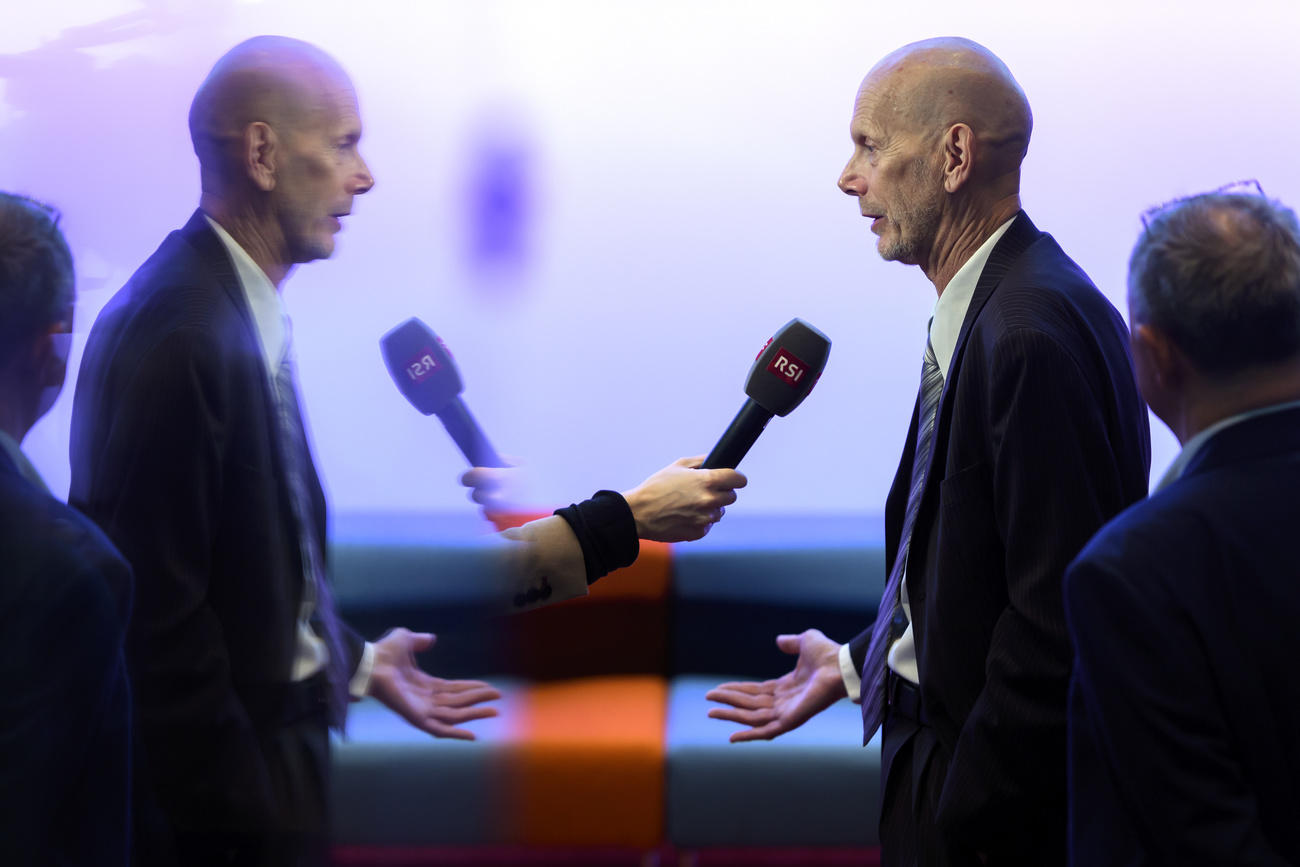
After years working as a Red Cross doctor in war zones around the world, Daniel Koch has become the face of the Swiss government’s response to the coronavirus pandemic.
Koch has been thrust into the spotlight; his face is everywhere, on television screens and newspaper front pages across Switzerland. The head of communicable diseases at the Federal Office of Public Health (FOPH) has become a key figure, helping explain the spread of the virus in Switzerland to millions of residents confined in their homes. He is the man answering journalists’ difficult questions in Bern, stressing that the “situation is dramatic” and announcing the growing numbers of positive cases and fatalities.
Koch is the trusted civil servant on the frontline, every day defending the government’s coronavirus strategy, which entails a partial lockdown that relies on Swiss public spirit and individual responsibility to fight the virus. The strategy is not as strict as those in Italy and Spain, which have been particularly badly hit, or in neighbouring France and Austria.
Koch’s calm demeanour has brought him praise in the German-speaking press.
“He’s an ascetic meditation guru who seems to be able to lower the collective pulse of the Swiss people to a bearable, healthy level,” said the Berner Zeitung.
The Luzerner Zeitung wrote: “Despite the dramatic nature of events, he doesn’t have any taste for blood, sweat or tears. He would never compare the virus to a war, as the French president did.”
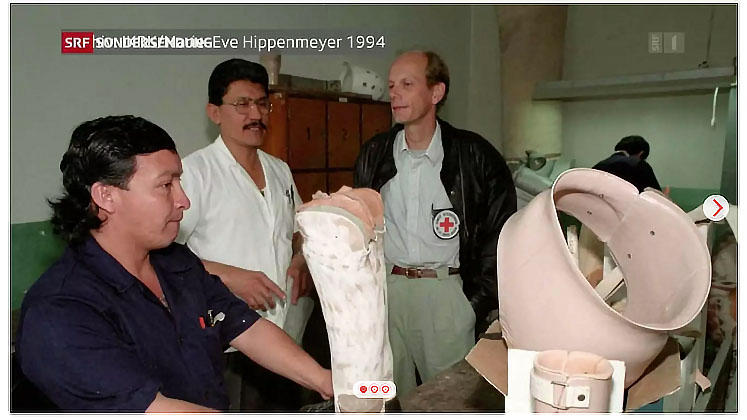
‘I have experienced many terrible things’
Koch’s long, eventful career has taught him how to stay calm during turbulent times.
“I have experienced many terrible things,” the 64-year-old doctor from canton Valais in southwestern Switzerland has said.
After completing his studies in medicine at Bern, Koch worked for 15 years for the International Committee of the Red Cross (ICRC). He became an ICRC medical coordinator and worked in Sierra Leone during the civil wars in 1991 and 2002.
“It was a particularly brutal war during which atrocities were committed. People had their hands cut off and child soldiers were instrumentalised,” he told newspaper Blick. He also carried out ICRC missions in Uganda, Rwanda, during the genocide in 1994, and South Africa.
Before becoming the face of the government’s response to coronavirus, Koch worked behind the scenes in the FOPH’s battles against the SARS epidemic in 2002/2003 and bird flu.
“Having experience dealing with crises certainly helps you stay calm in this current situation,” he said recently.
Over the next few weeks or months, Koch will have to use his full experience and resources to manage this unprecedented crisis. He oversees a team of seven people who work day and night, seven days a week.
The crisis has meant the father of two has had no time for much else, like his hobby canicross, cross-country running with his two dogs.
“I sleep enough and I eat enough; I’ve always been thin,” he said recently to reassure about his pale and tired appearance.
‘Dramatic incoherence’
The pressure on the shoulders of Switzerland’s “Mr Coronavirus” is immense. While the media in German-speaking regions have praised his work, in French- and Italian-speaking Switzerland the strategy of the FOPH and the Swiss government has sparked criticism. There have been numerous calls for stricter confinement measures in French-speaking regions. Citizens even launched an online petition calling for a tougher line.
In Italian-speaking Ticino, which has been the worst-affected region, there have also been calls for strict isolation as in Italy. The Ascona government wrote to Koch saying some of his messages were unclear.
Switzerland’s strategy has also raised eyebrows abroad. In France, Haute-Savoie Senator Loïc Hervé urged his foreign minister to contact Switzerland to complain that the Swiss strategy was endangering the Ain and Haute-Savoie border regions, which are home to many cross-border workers. He called the Swiss approach “voluntarily lax” and a “dramatic incoherence”.
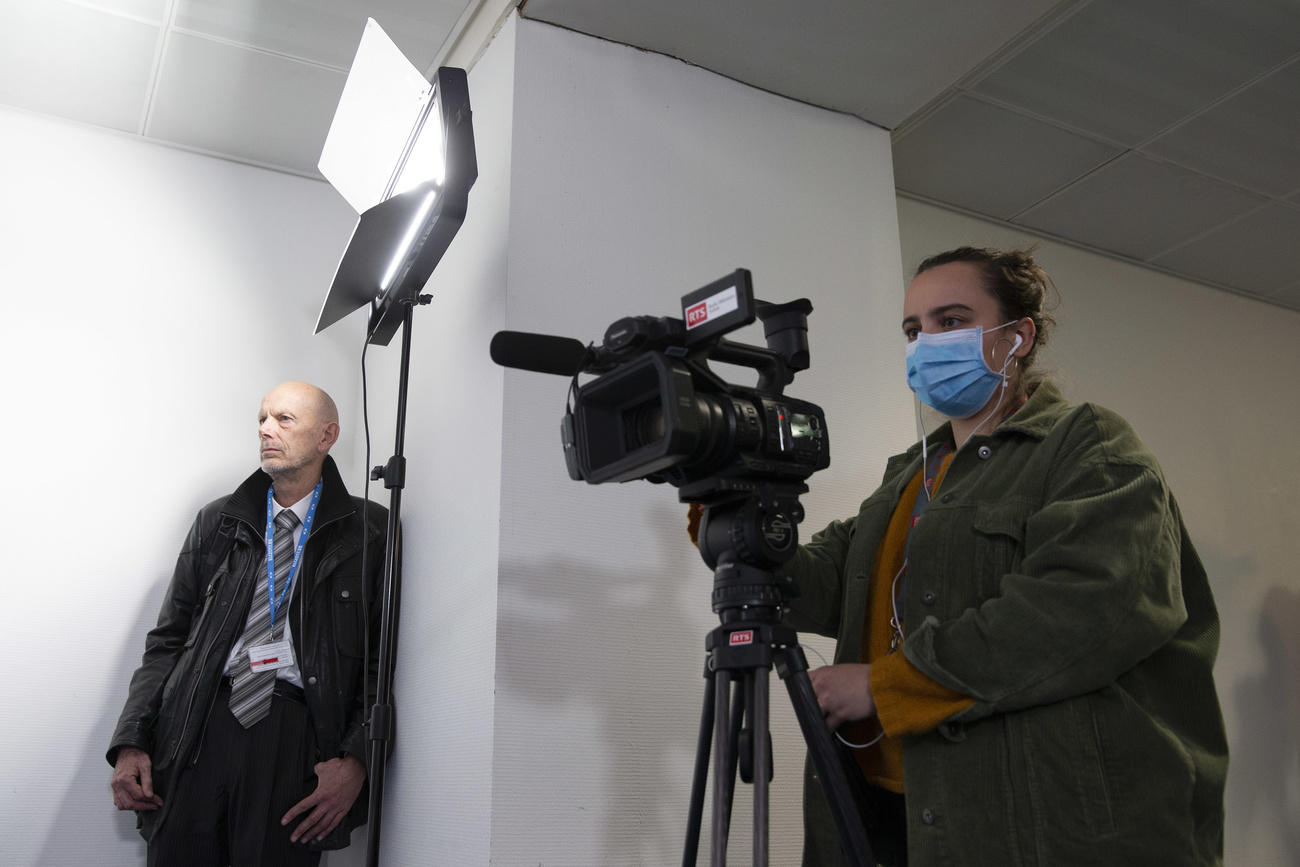
‘We are not China’
The measures taken by the federal authorities in Bern have also revealed stark cultural differences across the country. While French- and Italian-speakers have called for tougher confinement measures, German-speakers appear happy with the rules imposed so far.
“In German culture, it is assumed that individual responsibility will lead to collective responsibility. This is a strange idea for cultures from southern Europe where order is supposed to come from above,” Swiss historian Olivier Meuwly told Le Temps.
In the face of criticism, Koch continues to explain tirelessly the government’s strategy. “We will perhaps toughen the measures a bit but the aim is not to impose total confinement,” he said.
“The measures that we are taking must match those of our culture, our society and democracy. We are not China and we don’t want to become a totalitarian regime.”
For the moment “Mr Coronavirus” seems to have reassured the Swiss public. In a recent public survey, 63% of respondents said they had confidence in the Swiss political leadership.
However, they were divided over the government’s coronavirus response: 54% of respondents agreed with the government’s current policy, while 42% wanted the authorities to limit personal freedom more strictly.
Will this be Koch’s swansong mission? The health official, who celebrates his 65th birthday on April 13, was due to retire, but he will probably have to put those plans on hold given the extent of the ongoing crisis and his key role.
Coronavirus timeline in Switzerland
· February 25: Switzerland reports its first coronavirus case – a 70-year-old man tests positive in canton Ticino, in the south of the country bordering Italy. Ticino bans all public events, including the carnival parades.
· February 27: “Social distancing” is one of the precautions called for as part of an information campaign by the Federal Office of Public Health. The Engadin Ski Marathon – scheduled for March 8 – is cancelled. The Swiss sporting scene starts shutting down.
· February 28: The government raises the alert level to “special situation” – banning events with more than 1,000 people, including football and ice hockey championships, carnivals in Basel and Lucerne, the Geneva Motor Show and Baselworld watch fair.
· March 5: A 74-year-old woman dies in Lausanne. She is the first confirmed coronavirus death in Switzerland.
· March 13: Ticino is the first canton to close all schools as part of its “emergency measures”. The federal government launches an emergency aid package worth CHF10 billion ($10.3 billion) and bans public gatherings of more than 100 people.
· March 16: The Swiss government declares an “extraordinary situation”, instituting a ban on all private and public events and closing restaurants, bars, leisure facilities and shops apart from grocery stores and pharmacies.
· March 19: Canton Uri orders people 65 and older to stay inside their homes. The federal government tells the canton it can’t do that.
· March 20: The government announces a nationwide ban on gatherings of more than five people in public spaces. It urges the public to stay home except to buy food or go to the doctor. Some city parks are shut and police begin enforcing the ban on groups of 5+.
· March 21: The foreign ministry announces special charter flights for hundreds of Swiss citizens stranded in South America and Africa.
· March 22: Canton Ticino orders manufacturing plants to shut down, though cantons have been warned not to unilaterally exceed the recommendations of the federal authorities.

More
Coronavirus: the situation in Switzerland
Translated from French by Simon Bradley

In compliance with the JTI standards
More: SWI swissinfo.ch certified by the Journalism Trust Initiative
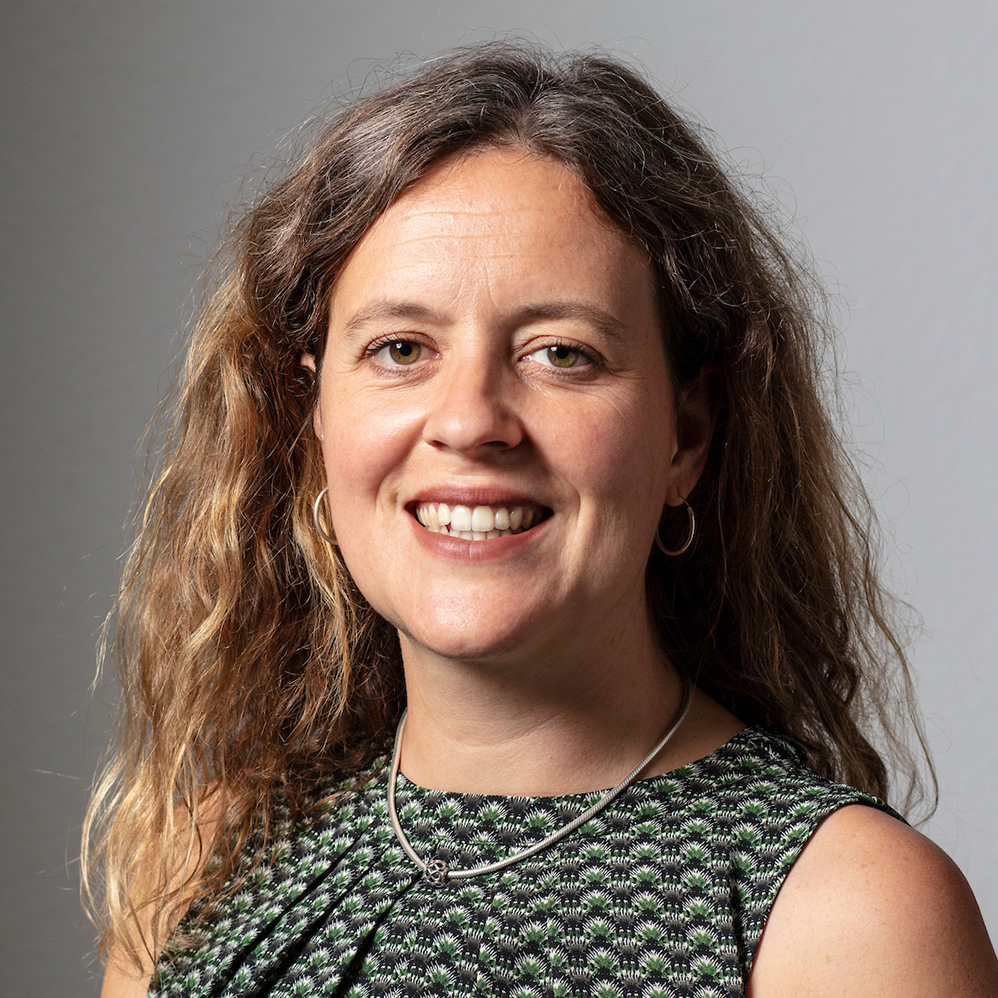


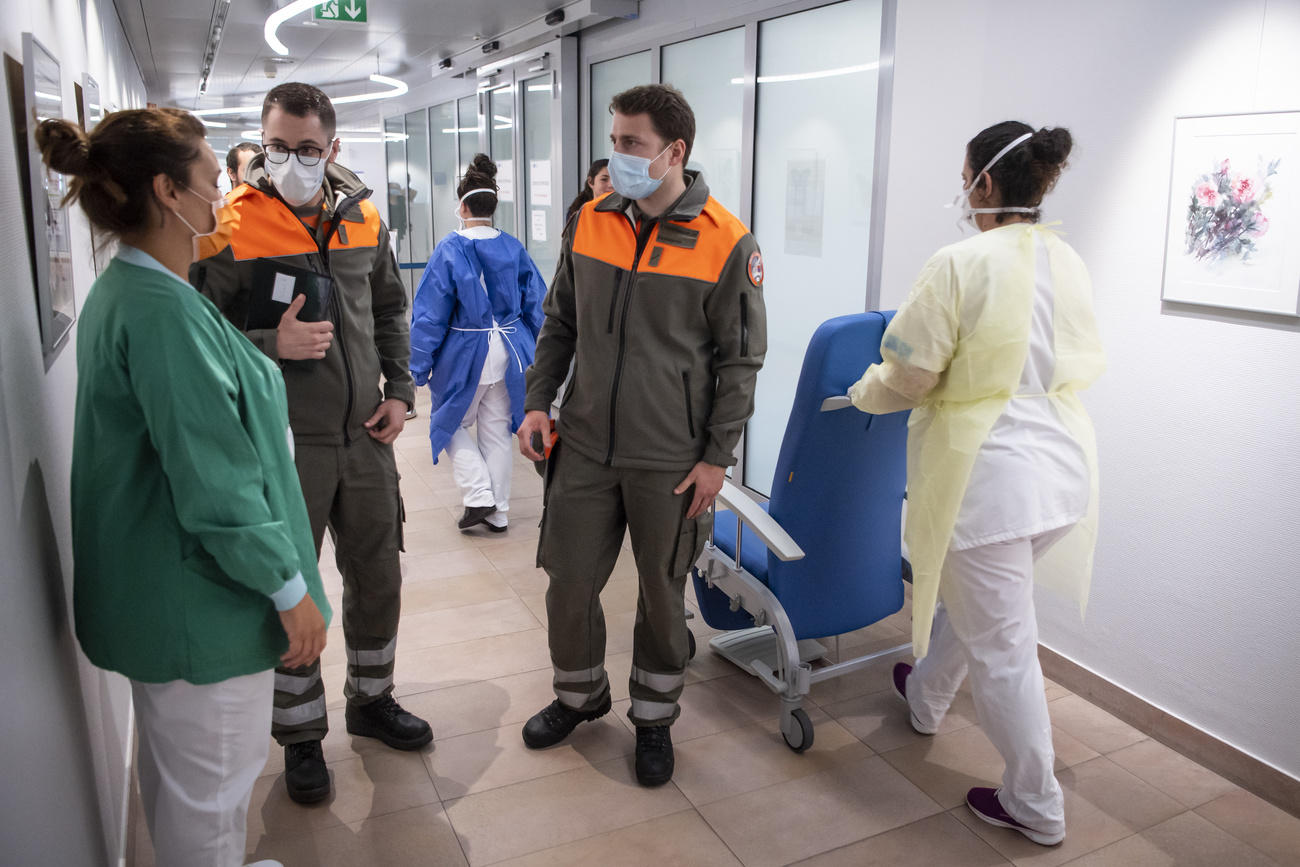

You can find an overview of ongoing debates with our journalists here. Please join us!
If you want to start a conversation about a topic raised in this article or want to report factual errors, email us at english@swissinfo.ch.